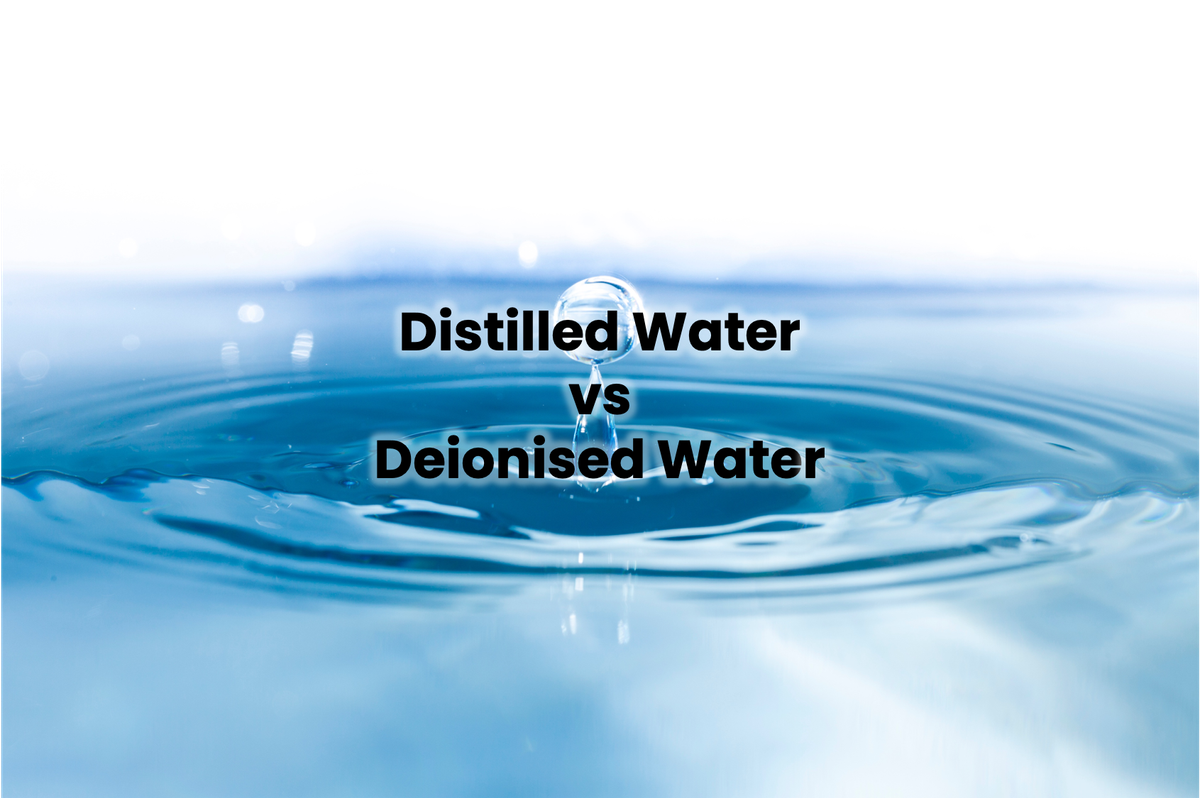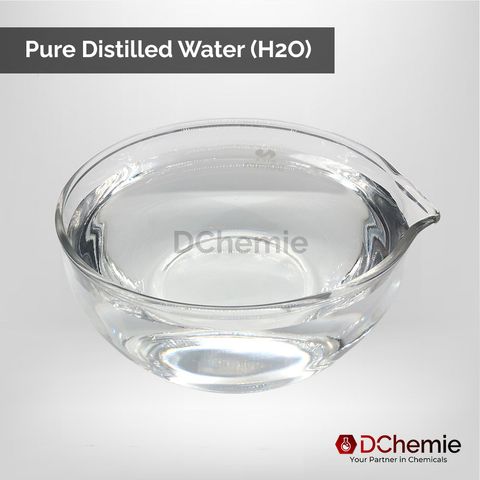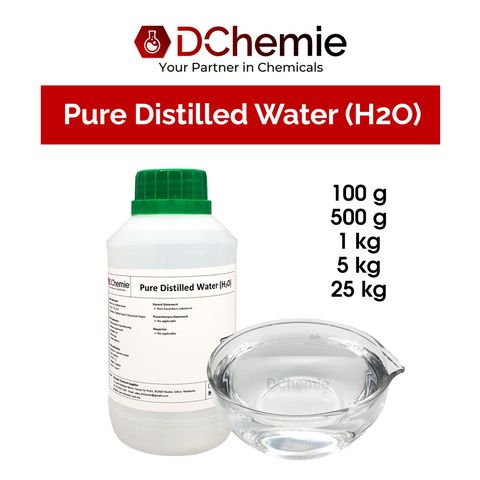
What is a Distilled Water?
Distilled water is a type of highly purified water that has been produced by boiling water and then condensing the steam back into liquid form. During the boiling process, impurities, such as minerals, bacteria, and other contaminants, are left behind in the boiling chamber, and the resulting steam is collected and cooled down to produce distilled water.
Because distilled water is produced through a process of boiling and condensation, it is free from most impurities, including minerals, bacteria, and other contaminants that may be present in regular tap water or other sources of water. This makes distilled water suitable for a wide range of applications, including laboratory experiments, medical procedures, and various industrial applications.
Applications of Distilled Water
Distilled water is a type of purified water that is used in a variety of applications where the presence of impurities, minerals, or contaminants is not desirable. Here are some of the most common applications of distilled water:
- Laboratory Experiments: Distilled water is often used in laboratory experiments and procedures where the presence of impurities or contaminants could affect the results. It is also used in medical and clinical laboratories for preparing solutions, cleaning laboratory equipment, and for rinsing and diluting samples.
- Medical and Pharmaceutical Uses: Distilled water is used in the manufacture of medicines, medical devices, and pharmaceutical products. It is also used for injection and irrigation purposes, and as a sterile rinse for wounds and medical equipment.
- Automotive and Industrial Uses: Distilled water is used in automotive and industrial applications where the presence of impurities or minerals in the water could cause corrosion or other damage to equipment. It is often used as a coolant in car engines, batteries, and industrial machinery, as well as for steam generation in power plants.
- Cosmetics and Personal Care Products: Distilled water is used in the manufacture of cosmetics and personal care products such as shampoos, soaps, lotions, and perfumes. It is also used for diluting and dissolving ingredients, as well as for cleaning and sterilizing equipment.
- Home and Consumer Uses: Distilled water is sometimes used for drinking and cooking purposes, although it is not typically recommended as a primary source of drinking water due to the absence of minerals that are beneficial for health. It is also used for cleaning and maintaining household appliances, such as humidifiers, steam irons, and coffee makers.
What is Deionised Water?
Deionized water, also known as demineralized water or DI water, is a type of highly purified water that has had most or all of its mineral ions removed through a process of ion exchange. This process involves passing water through a resin bed that contains charged resins that attract and remove ions and other charged impurities from the water.
The resin bed is typically made up of cation and anion resins, which attract and remove positively and negatively charged ions, respectively. As the water passes through the resin bed, the charged impurities are removed from the water, leaving behind highly purified deionized water.
Distilled Water vs Deionised Water
Distilled water and deionized water are both types of purified water, but they are produced using different processes and have different properties. Here are some of the key differences between distilled water and deionized water:
- Production Process: Distilled water is produced by boiling water and then condensing the steam back into liquid form, which removes impurities, such as minerals, bacteria, and other contaminants. Deionized water, on the other hand, is produced by passing water through a resin bed that contains charged resins that attract and remove ions and other charged impurities from the water.
- Ion Content: Distilled water typically has a very low ion content because most of the ions and minerals have been removed during the distillation process. Deionized water also has a low ion content, but it may still contain some ions depending on the specific type of resin used in the deionization process.
- pH: Distilled water has a neutral pH of 7 because it does not contain any dissolved ions that can affect the acidity or alkalinity of the water. Deionized water can have a variable pH depending on the specific ions that have been removed or retained during the deionization process.
- Conductivity: Distilled water has a very low electrical conductivity because it does not contain any dissolved ions that can conduct electricity. Deionized water also has a low electrical conductivity, but it may still conduct electricity to some degree depending on the specific type of resin used in the deionization process.
- Cost: Distilled water is typically more expensive to produce than deionized water because the distillation process requires more energy and equipment. However, the cost of distilled water may vary depending on the specific source and quality of the water, as well as the production method used. Deionized water is generally less expensive to produce because it requires less energy and equipment, but the cost may vary depending on the specific type of resin used and the complexity of the deionization process.
Purity of Distilled Water & Deionised Water
Both distilled water and deionized water are highly pure forms of water, but the exact level of purity can depend on the specific methods and equipment used to purify the water.
Distilled water is typically considered to be one of the purest forms of water available, as the distillation process removes almost all impurities, including minerals, bacteria, viruses, and organic compounds.
Deionized water also has a very high level of purity, as the ion exchange process can remove most minerals, salts, and other impurities. However, some organic compounds, bacteria, and viruses may still be present in deionized water, as they are not affected by the ion exchange process.
Shelf Life of Distilled Water
Distilled water has an indefinite shelf life when stored properly. This is because the distillation process removes all impurities and microorganisms that could cause the water to spoil or degrade over time. However, it is important to store distilled water in a clean, airtight container to prevent contamination or exposure to air, which could lead to the growth of bacteria or other microorganisms.
To maximize the shelf life of distilled water, it is recommended to store it in a cool, dry place away from direct sunlight and heat sources. It should be stored in a clean, airtight container that is free from contaminants or impurities. If the water is to be used for medical or laboratory purposes, it should be sterilized before use to ensure that it is free from microorganisms.
It is also important to note that the shelf life of distilled water may be affected if it comes into contact with contaminants, such as when it is used to clean laboratory equipment or household appliances. In these cases, it may be necessary to replace the distilled water more frequently to ensure that it remains pure and free from impurities.
Conclusion
Getting good quality of distilled water is important for several reasons. First and foremost, distilled water is often used in sensitive applications, such as laboratory work, medical procedures, and the production of certain consumer products. In these settings, even small amounts of impurities can have significant consequences, ranging from inaccurate test results to product defects.
Hence, it is important to find a good and reliable source for getting distilled water for your needs. At DChemie, we supply distilled water with good quality at competitive prices to various industries. Feel free to find us if you are looking for good quality distilled water.






